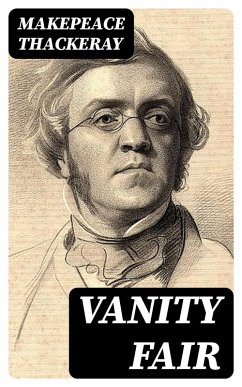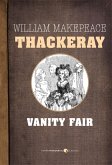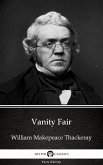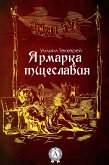Set against the backdrop of early 19th-century England, 'Vanity Fair' delivers a rich tapestry of social commentary, exploring themes of ambition, greed, and moral ambiguity. Thackeray employs a satirical tone and a keenly observational narrative style, interweaving the lives of his two protagonists, Becky Sharp and Amelia Sedley, against the tumultuous landscape of the Napoleonic Wars and the societal changes of the era. The book is notable for its unconventional narrative structure, eschewing a linear plot in favor of a complex intermingling of characters whose destinies are driven by vanity and social aspirations. William Makepeace Thackeray, a prominent figure of Victorian literature, was born in 1811 and received a diverse education, enriching his understanding of human character and society. His own life experiences, including struggles with financial instability and a critical perspective on the upper classes, deeply inform the incisive critiques found in 'Vanity Fair.' Thackeray's background as a satirist and illustrator allowed him to craft a multifaceted narrative that is as entertaining as it is thought-provoking, inviting readers to reflect on the era's moral dissonance. 'Vanity Fair' is highly recommended for readers who appreciate a layered narrative filled with wit, humor, and social critique. Its exploration of timeless themes makes it not only a quintessential Victorian novel but also a relevant commentary on human nature that resonates across the ages. Dive into Thackeray's world and experience the enduring allure of its complex characters and sharp societal observations.
Dieser Download kann aus rechtlichen Gründen nur mit Rechnungsadresse in A, B, BG, CY, CZ, D, DK, EW, E, FIN, F, GR, H, IRL, I, LT, L, LR, M, NL, PL, P, R, S, SLO, SK ausgeliefert werden.









